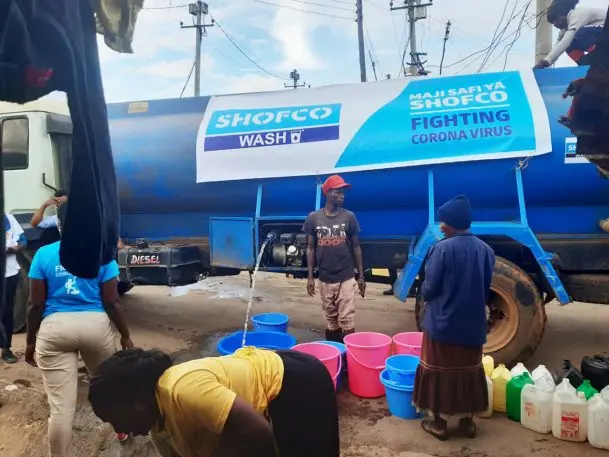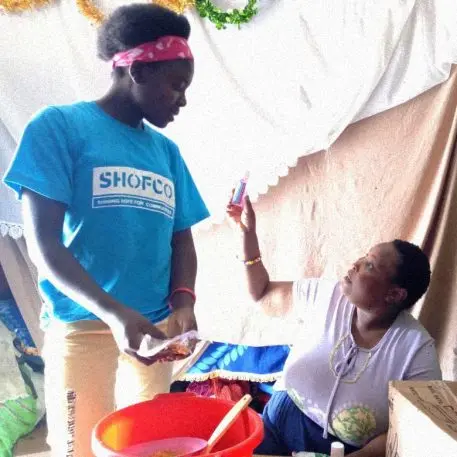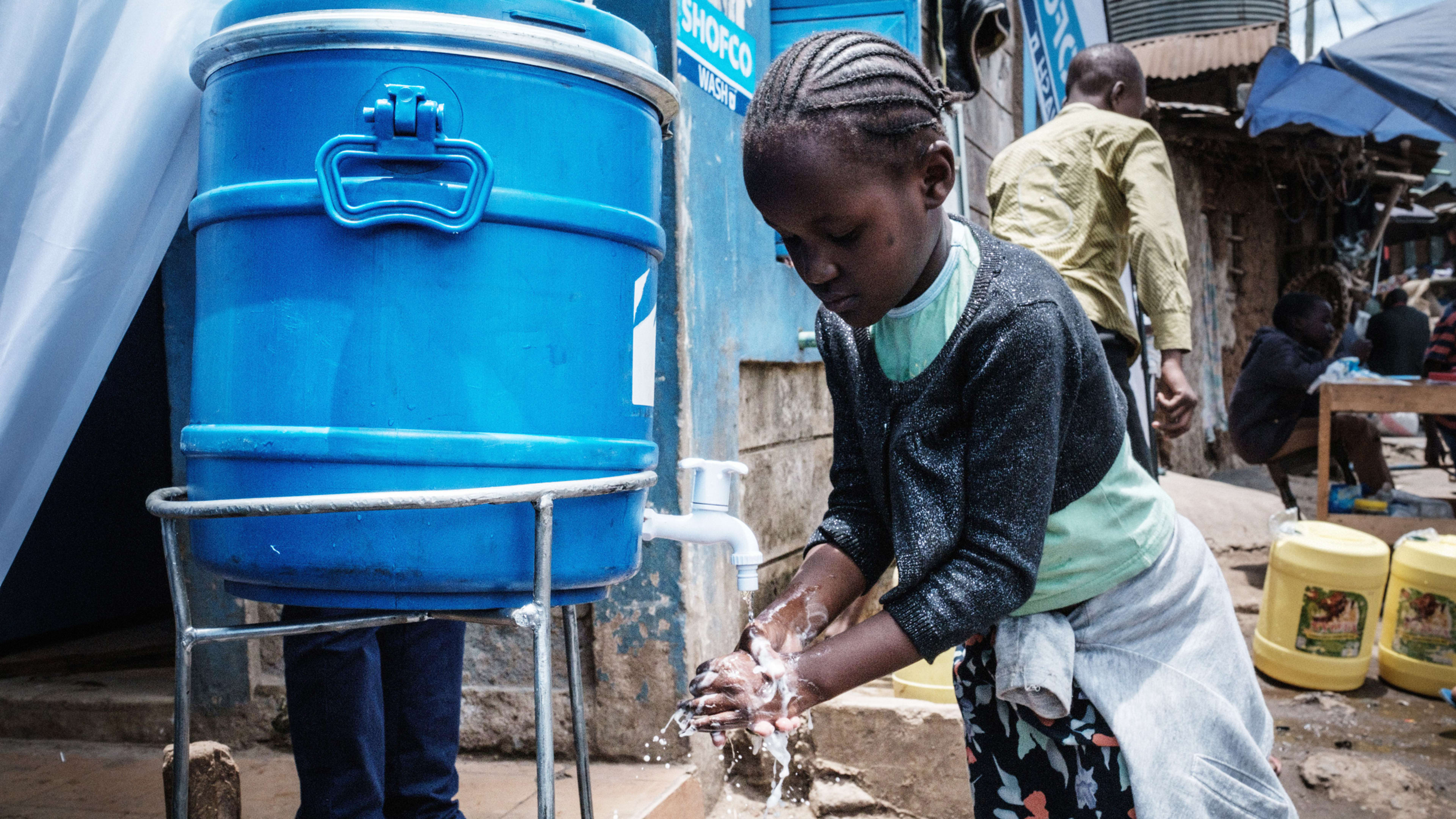In Kibera, the largest slum in Kenya’s capital city of Nairobi and one of the largest slums in Africa, the biggest defenses against the spread of COVID-19—social distancing and frequent handwashing—are nearly impossible. Families cluster in 10-foot-by-10-foot shacks, and residents share one latrine with 50 to 150 people. Water in the pipes is often contaminated with sewage, clean water is scarce. But a local community leader is working to keep his neighbors safe with handwashing stations, soap distribution, and education initiatives.
“I look at New York, I look at France, I look at Italy, these people are already developed in terms of their healthcare systems and [they’ve] been overrun,” says Kennedy Odede, who grew up in Kibera and founded the nonprofit Shining Hope for Communities. “What about Kenya? What about slums? What about Africa?”

Shining Hope for Communities, or SHOFCO, is a grassroots organization in Nairobi that provides social services for those in urban slums, and specifically education and leadership opportunities for girls and women. As Odede worries about the coronavirus crisis spreading through Africa, he’s catalyzed on-the-ground prevention efforts through his network of community leaders, who he says locals are more likely to listen to.
When the coronavirus pandemic first began, there were rumors that black people were immune to COVID-19, and that this wasn’t a disease that would hit Africa, Odede says. Though Africa hasn’t been as hard hit as other continents, COVID-19 is now there; Kenya has 42 confirmed cases as of Monday, and Africa as a whole has more than 3,400. While some of those claims about immunity may have been made as jokes, it still sparked a threat that Africans may not take the situation seriously. “This is real,” he says. “Corona doesn’t understand if you are white or black.” And slums, he adds, with their close quarters, lack of sanitation, and absence of health facilities, are particularly vulnerable. “Social distancing is a privilege,” he says.
To combat disinformation, the nonprofit is working on creating a disinformation-tracking project to allow community members to report rumors about coronavirus, which SHOFCO volunteers will analyze and then respond to. That project is set to launch next week, but SHOFCO has already been busy with other COVID-19 prevention efforts.
SHOFCO has set up more than 100 handwashing stations in the slums of Nairobi, staffed with volunteers who instruct people to wash their hands when they enter and exit the slums to help keep COVID-19 out of those areas. Using an aerial water system that the nonprofit pioneered—and which won the 2018 Hilton Humanitarian Prize—overhead pipes carry this water, rather than ground-level pipes that are often tampered with or stepped on, thus allowing sewage to seep in.

These handwashing stations have also become centers to give out coronavirus information, with volunteers giving out soap, hand sanitizer, and pamphlets to spread awareness of the disease. “We’re using local chiefs in Kibera to lead, we’re using local-level officials to come and wash their hands and talk about this,” Odede says. In Kibera alone, more than 117,400 people have used these handwashing stations, according to the nonprofit.
Local makers that are part of the SHOFCO Women Empowerment Program, which teaches business skills to women living in the Kibera and Mathare slums with HIV, are producing and distributing soap, more than 5,000 50ml bottles so far, along with masks for community health workers. The nonprofit has also set up six health clinics in Kibera and is bulk-purchasing food essentials such as cooking oil and rice that it can offer below retail costs, along with providing meals to students even as schools are closed by a government mandate.
Odede hopes these efforts can make Africa, and the slums specifically, more prepared for coronavirus. “I feel like the African governments, the African people, are now learning from the mistakes of America, the mistakes of Europe,” he says, but he also notes that Africa doesn’t have the same resources for contactless food delivery and overnight shipping and social distancing that the Western world does. “If this disease can be uncontrollable for people in rich countries, what about a developing country, and the poor people in that country?” Odede says. That’s why he’s focused on working with his community to make everyone safer. “Let’s take care of each other,” he says. “Right now it’s high time we protect ourselves.”
Recognize your brand’s excellence by applying to this year’s Brands That Matter Awards before the early-rate deadline, May 3.
